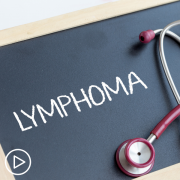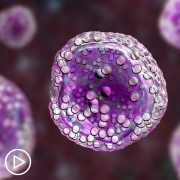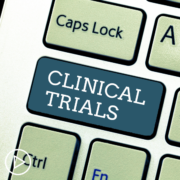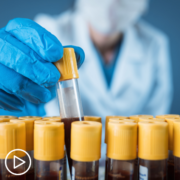What Is Precision Medicine for Prostate Cancer?
What Is Precision Medicine for Prostate Cancer? from Patient Empowerment Network on Vimeo.
Prostate cancer has the option of precision medicine in the treatment toolbox. Dr. Heather Cheng from Seattle Cancer Care Alliance defines precision medicine and explains how it is used to help provide optimal prostate cancer care.
See More from Prostate Cancer TelemEDucation
Related Programs:

Should Prostate Cancer Patients and Families Keep Using Telemedicine? |

How Can We Improve Remote Access for Prostate Cancer Patients? |

|
Transcript:
Sherea Cary:
So, what is precision medicine? And what…and what is precision medicine when we think about prostate cancer?
Dr. Heather Cheng:
Yes, it’s a great question and something I get really excited about. So, precision medicine, I guess in a nutshell would be finding out more about somebody’s personal prostate cancer and being more precise about our treatment decisions, meaning using that information to avoid overtreating or using drugs or treatment that don’t work and choosing treatments that we have a much higher level of confidence will be effective. Now, that’s the potential, sometimes we’re more successful than other time, but in prostate cancer, we have a few exciting examples that are, I think that are new, that I think just get me really excited because, for example, some cancer…some people, cancers have certain mutations or markers in them, that if they’re there, which is not in all people with prostate cancer, but if they’re there, then we have a different treatment tool box for those patients, so we have new extra, extra drugs or extra treatment opportunities, and that’s the sort of precision aspect or tailoring or we’re making the treatment it better for the patient and their cancer, and that’s really exciting, so it’s not one-size-fits-all, but kind of more tailored to the patient and their particular cancer.









